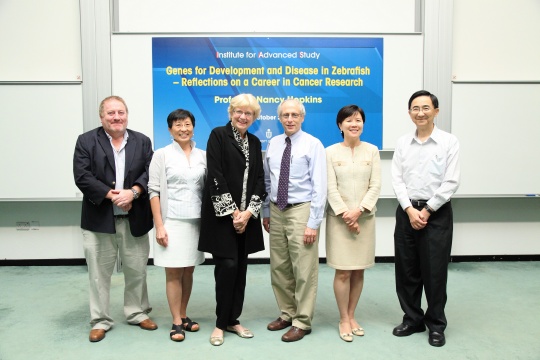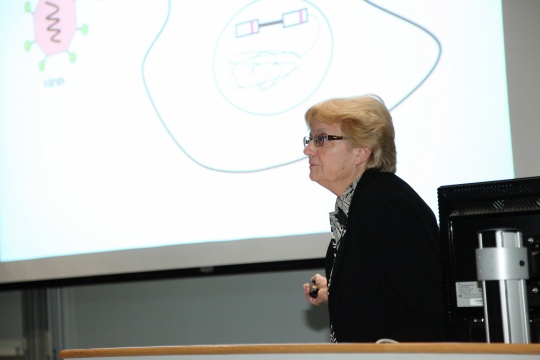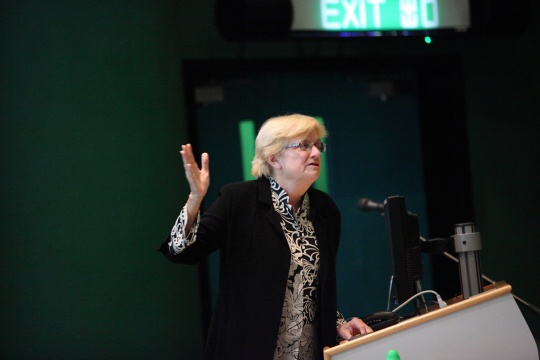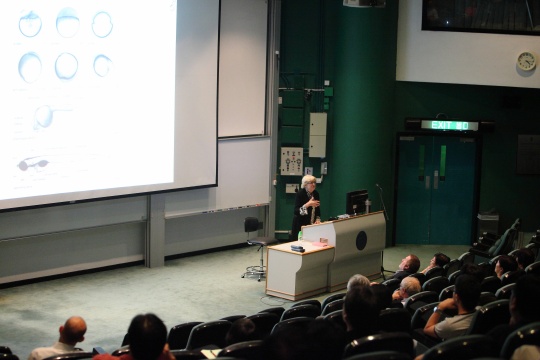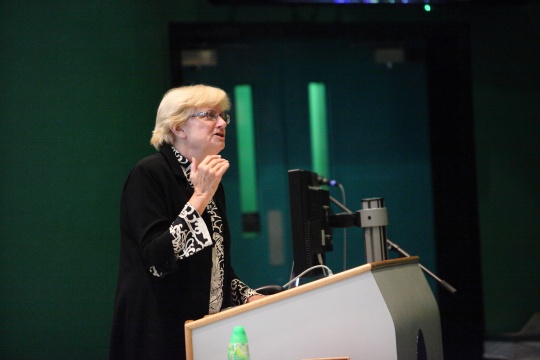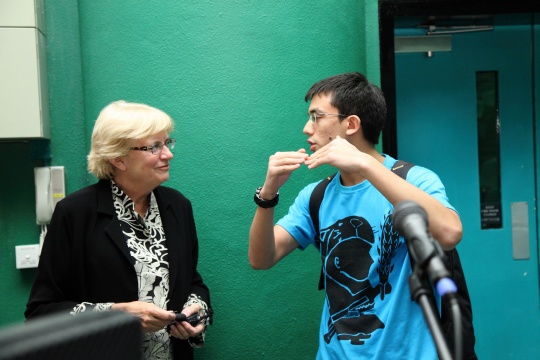Genes for Development and Disease in Zebrafish - Reflections on a Career in Cancer Research
Abstract
Although originally selected as a model organism for studying early vertebrate development, the fish has also become a genetic model for studying diseases, including cancer. Some years ago the speaker’s lab developed a method of insertional mutagenesis for the zebrafish and used it to isolate mutations in about 25% of the genes essential for early fish development. A number of the mutated genes turned out to predispose adult fish to cancer as heterozygotes and the speaker and her research group have studied these cancers. Most recently they examined aneuploidy, and found that the fish tumors closely resemble human cancers in being highly aneuploid and extremely heterogeneous, with different cells within a tumor having different genomes. Former postdocs are using this similarity to human tumors to try to identify the genes whose over and under-representation is important in human cancers. In addition to describing this work, time permitting the speaker will reflect on the tremendous progress in cancer research during her career and a new direction she is pursuing to study cancer.
About the speaker
Prof. Nancy Hopkins received her PhD in Molecular Biology and Biochemistry from Harvard University working on phage lambda with Prof Mark Ptashne. She was a postdoctoral fellow with Prof James D Watson and Prof Robert Pollack at the Cold Spring Harbor lab where she worked on DNA tumor viruses. She joined the Massachusetts Institute of Technology (MIT) faculty in 1973, and worked on RNA tumor viruses, identifying genes for host range and leukemogenicity, and then switched fields to work on zebrafish. Her lab developed insertional mutagenesis for the fish and identified many genes involved in development and disease, including cancer. In 1995 Prof Hopkins chaired a committee at MIT that studied the status and under-representation of women faculty in science and issued a public report in 1999. She joined the MIT administration and worked with the President and Provost to address issues identified in the report. She is currently the Amgen, Inc. Professor of Biology at MIT.
Prof. Hopkins is a member of the US National Academy of Sciences, the Institute of Medicine, and a Fellow of the American Academy of Arts and Sciences.

